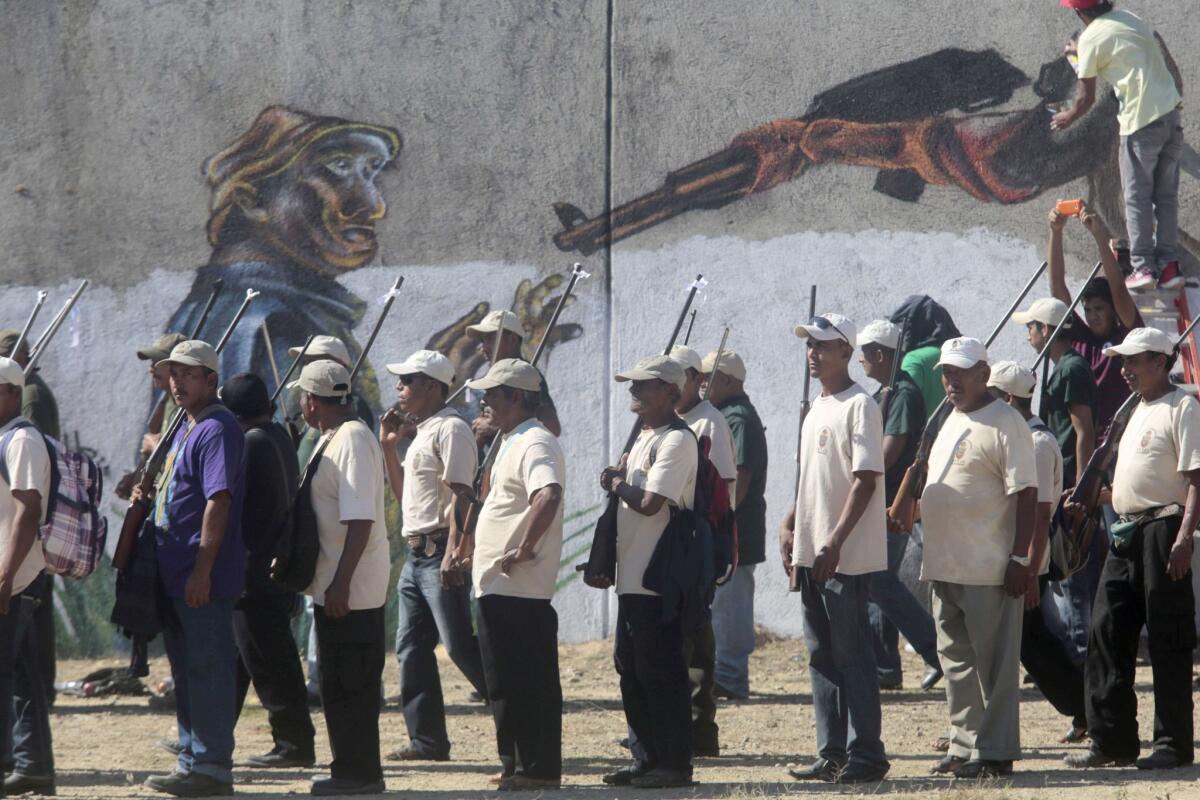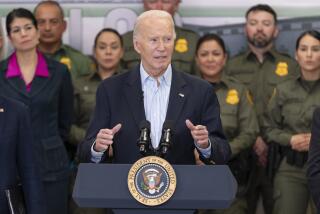Crime still a widespread concern in Mexican cities, poll finds

MEXICO CITY — Nearly seven in 10 Mexican city dwellers believe that crime has rendered their cities unsafe, according to a new poll that underscores the ongoing challenge facing President Enrique Peña Nieto, who took office more than a year ago promising to beat back the lawlessness that affects law-abiding Mexicans.
The December poll was released late Wednesday and is the second of its kind to be produced by Mexico’s National Institute of Statistics and Geography. [Link in Spanish] It also found that 65% of city-dwelling adults had witnessed a robbery or assault in the last three months, and 39% had witnessed a drug deal. Moreover, 62% of respondents believed that conditions would remain the same or worsen in the coming year.
The institute, commonly known here by its Spanish-language initials, INEGI, is funded by the federal government, but is theoretically independent from political pressures. The week’s findings are similar to those generated by polling conducted in September.
INEGI officials say the security poll will become a regular feature, with statistics released every three months. And that could mean regularly recurring headaches for Peña Nieto’s public relations machine, which has sought to downplay crime and violence in Mexico and focus the public’s interest more intensely on economic and political reform.
Since taking office in December 2012, Peña Nieto has pushed through a series of ambitious nationwide reforms, including a historic opening of Pemex, the Mexican state oil company, to foreign investment, earning plaudits from some international observers.
But the administration has struggled on the domestic security front. And security, of course, is a key concern in a country that saw 70,000 residents die during a military-led offensive against Mexico’s powerful drug cartels launched by the previous president, Felipe Calderon.
Since Peña Nieto took office, the number of homicides has dropped, according to government figures, but extortion and kidnapping are on the rise. While the administration has been clear in describing its goals for economic and political reform, its message on security has been confusing at times.
After criticizing Calderon’s “kingpin strategy”—in which the federal government sought to hunt down top drug kingpins with U.S. help—members of Peña Nieto’s team said that they planned to continue pursuing it.
Plans for a flagship paramilitary force, or “gendarmerie,” have been modified numerous times, and these new police have yet to hit the streets.
Members of the Peña Nieto administration have urged patience, arguing that they need time to build the framework for a more effective security strategy.
Twitter: @RichardFausset
Sanchez is a news assistant in The Times’ Mexico City bureau.
More to Read
Start your day right
Sign up for Essential California for news, features and recommendations from the L.A. Times and beyond in your inbox six days a week.
You may occasionally receive promotional content from the Los Angeles Times.






